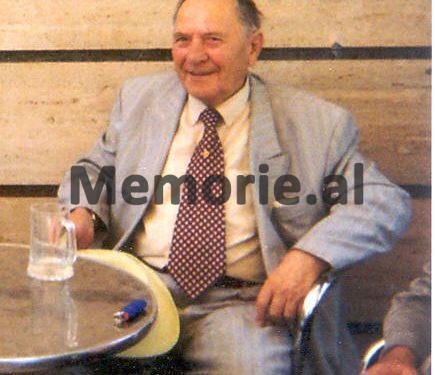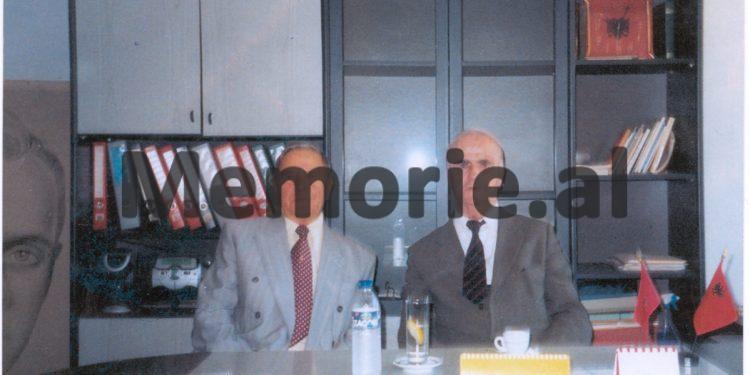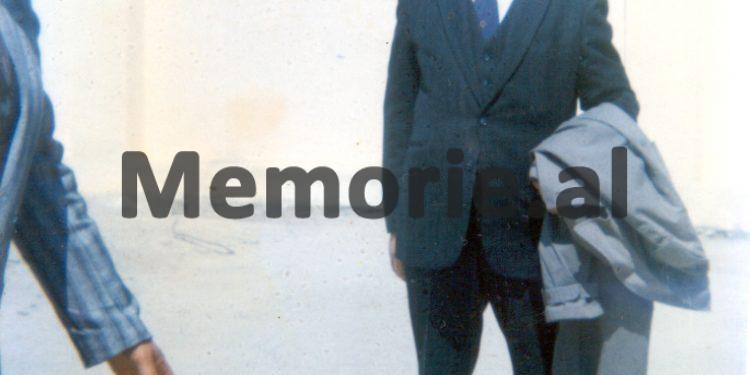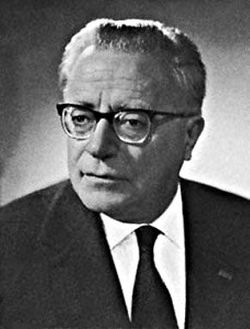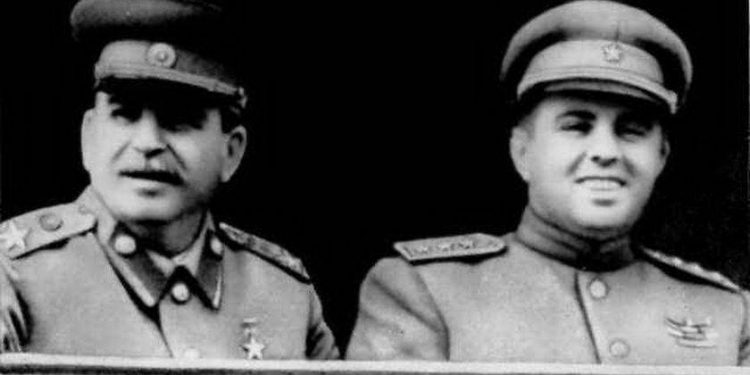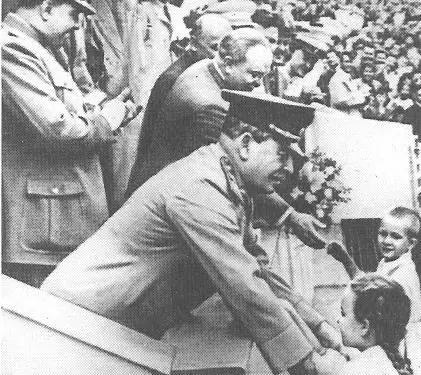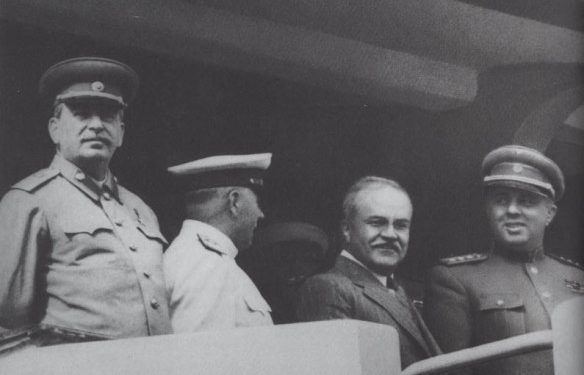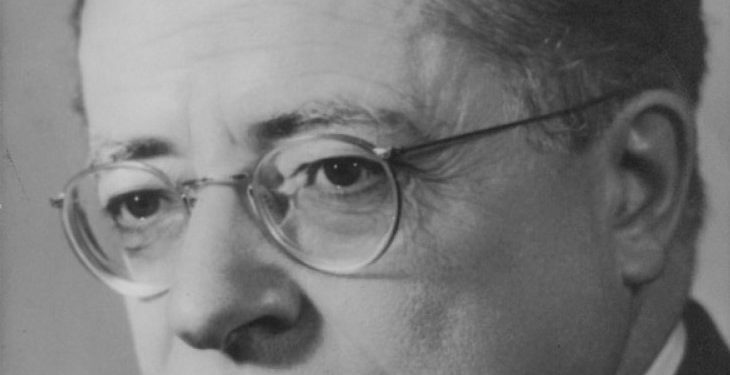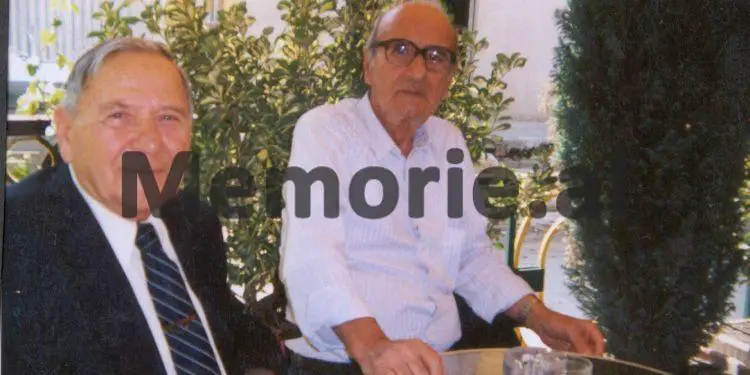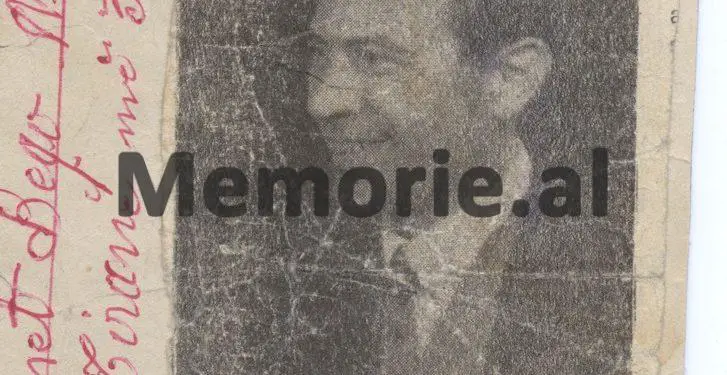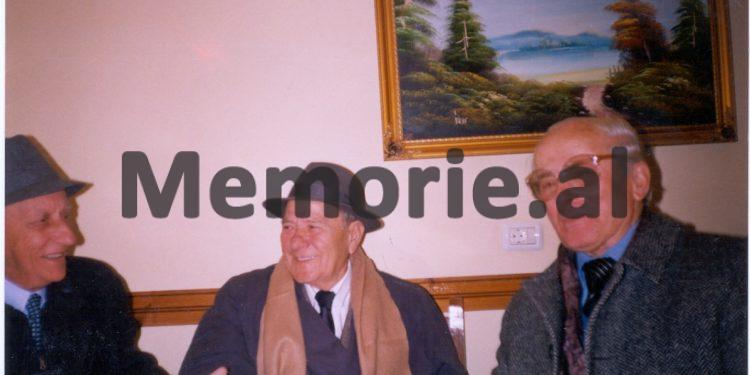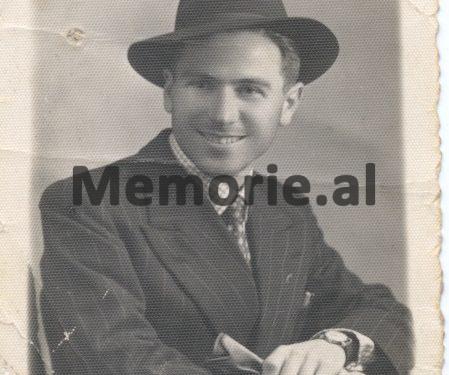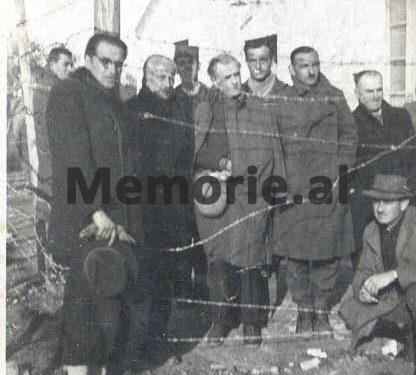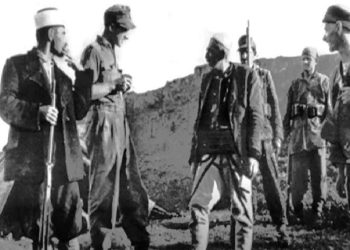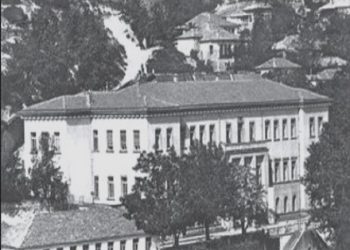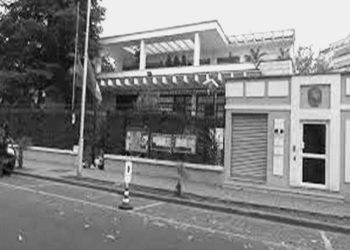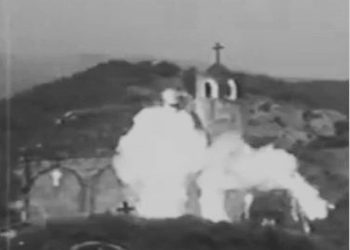Dashnor Kaloçi
Memorie.al publishes the unknown story of Ahmet Beqo Nivica, originally from Kurvelesh, who after graduating from the Vlora Commercial School, went to the mountains to join the partisan forces and then left the Front, forming a youth gang. Ballit Kombëtar, which he commanded in several battles against the Italians and Germans until November 1944. Ahmeti’s departure from Albania with the main leaders of Balli and Legality settling in the camps of Italy, where in 1946 he was in the camp of Santa -Fare, met with the two main leaders of the Italian Communist Party, Palmiro Toliati and Petro Bianki, to whom after a report on the crimes of Enver Hoxha, they suggested that he write to Stalin and he sent a letter on four typed pages.
“In 1946, when I was in the Santa Fara camp, I met with the two leaders of the Italian Communist Party, Palmiro Toliati and Petro Bianki, to whom I made a report on the crimes of Enver Hoxha. After Toliati listened to me attentively until the end and said to me: We as the Communist Party can not interfere in the internal affairs of another party. After receiving the answer from him, Sadik Premtja told me to address a letter to Stalin and make a report on all the crimes of Enver Hoxha and his clique that had been committed since the time of the war. At the beginning of the four-page typed report to Stalin in Italian, I wrote: ‘The glorious Comrade Stalin. We take the courage to report to you on the so-called Albanian Communist Party usurped by Enver Hoxha, which is nothing but an anarchist party… “.
This is how he remembered the meeting with Toliat, Ahmet Zylfo Nivica, originally from Nivica of Kurvelesh, former partisan and commander of the nationalist National Youth Front squads during the years of the War in Southern Albania, who recounts how he escaped from Albania in November 1944 together with the main exponents of Balli e Legalitet and after staying for 14 years in Italy and France, in 1958 he was forced to return to Albania, where he was arrested and ended up for 20 years in prison of the communist regime accused of ” foreign intelligence agent ”.
But who is Ahmet Nivica and what is his past? How could Ahmeti, on November 12, 1943, save the 200 ballistas who were at Riza Rune’s house in the village of Nivica, who would all be shot that night by Shefqet Peçi’s partisans? Why after this event did Ahmeti leave the ranks of the National Liberation Front and create his own nationalist gang, commanding it himself in several battles against the Italians and Germans until November 1944 when he left Albania? How he stayed for four years in Italian camps with other political immigrants and why he became associated with Sadik Premten, the old communist who together with Anastas Lulo had led the Communist Youth Group and who had attended the founding meeting of the Communist Party in November 1941 in Tirana? What did he ask the leader of the Italian communists Palmiro Toliati and why after that meeting Ahmeti with Sadik Friday sent a report to Stalin? What was said in that report and what was the response that came to them from the Kremlin? Regarding these mysteries and other events from the life of Ahmet Nivica, we are known through his testimonies which he gave us shortly before he passed away at his home in Tirana.
Who was Ahmet Nivica?
Ahmeti was born on February 23, 1923 in the village of Nivica, Kurvelesh, whence the origin of the family, where his father Zylfo Beqo, who was educated in “Zosimea” of Ioannina, was known as one of the largest landowners. throughout that province. In addition to the wealth he inherited, that family is known since the time of Marko Bocari, when Beqo Boduri (Ahmeti’s father’s grandfather) at the head of Kurvelesh forces, fought against the Greeks and after capturing Katerina, Katsandonis’s sister known as the greatest hero of Greece, brought him to Kurvelesh and married him. From that marriage three children were born, where one of them, Ahmeti (Ahmet Nivica’s grandfather from whom he inherited the name) followed in his father’s footsteps and fought against the Greeks who in 1878, he followed from the Saranda Skin to the vicinity of Athens. Zylfo Beqo Nivica (Ahmeti’s father) also followed the tradition of that family, who in 1920 took part in the Vlora War, where he was wounded together with Ismail Golem, Selam Musa and Abaz Shehu. For the many wars she has fought and for the patriotic attitude of the Nivica family, the people of that province have immortalized her in some of the songs she has sung to her. Ahmeti, also known as Ahmet Beqo Nivica, was educated at the Vlora Business School from 1935 to 1940, taking two classes in one year, where he became acquainted for the first time with communist ideas. With the end of the Italo-Greek War in 1941, he was arrested as an anti-Italian and together with Bilal Nivica’s brother and Abedin Arifi, were held for two months in Vlora Prison. After his release from prison, Ahmeti went to the mountains of Kurvelesh to fight against the Italians and in this regard, he recalled: “At that time I joined Mustafa Matohiti, with whom we went through the villages and made anti-fascist propaganda. In 1942, during an action against the Italians that we did in Cold Water in Tepelena, led by Matohiti and Bedri Spahiu, I was wounded and the Italians took me prisoner and took me to Gjirokastra Castle Prison, where I was in a dungeon with Shefqet Peçi. “We were endangered and sentenced to death, but we could be released on November 28, 1942, when Duçja granted an amnesty to all Albanians under the age of 18 who were in prison,” Ahmeti recalled at the time when he began his anti-fascist activities.
How did he save the 200 ballistas?
Even after being released from prison, Ahmeti went back to the mountains to fight against the Italians and about this he said: carpet. Then I joined the Battalion “Chameria” commanded by Haki Rrushiti and I fought with them in several battles against the Italians and Germans, until November 12, 1943, when I broke away from the Front after an incident I had with Shefqet Peçi who at the head of the Battalion “Asim Zeneli” that day had come to our village Nivica. That day I went out and received Shefqet, and for dinner we stayed at Xhule Memisha’s house, where we talked at length about the War. The next day two of my villagers, War activists, told me that 200 ballistas had come to the house of Riza Runa (former Prefect of Gjirokastra) and at 12 o’clock at night, on the orders of Shefqet Peçi, they would be beaten by partisans of his to be annihilated. I was surprised by this news, that until then it had not happened that the partisans and ballists were killed with each other and for this I went to the house of Riza Rune, where I found Zenel Gjoleka, Maliq Mezin, Seit Shehu, Riza Cane and some commanders of other nationalists, to whom I told that they were under siege, would be attacked by Shefqet’s partisans, and I showed them the way from which they could escape that siege. After the ballistas left the siege, the next day Shefqet Peçi gathered the people at the Rexhin mosque and, threatening them, asked them who had told the ballistas his plan. Not wanting to shoot an innocent villager, I told the truth to Shefqet, who, knowing the authority of my family and my fellow prisoner, told me that I should go with them, as they would give me a formal trial. to Lisat e Kadhe, where they would forgive me. “I did not go and the next day I left the ranks of the National Liberation Front”, recalled Ahmet Nivica, at the time when he saved 200 ballistas from being shot by Shefqet Peçi.
Escape from Albania in 1944
After leaving the ranks of the National Liberation Front, Ahmet Nivica himself formed a nationalist gang, about which he told us: “After the incident with Shefqet Peçi, a comrade in Delvina, and there I formed a nationalist youth gang, supported by Balli Kombëtar and its commander I was elected. At the head of that gang I fought together with the forces of Balli Kombëtar commanded by Ismail Golemi in Qafë e Muzina against the Parma Division, in revenge for the murder they committed against 36 nationalists led by Hysni Lepenica in the Italian Division of Grehot. After this battle, I took over three Italian depots and gave two to the National Front and kept one for my platoon. Then we fought in Palavli, Krame, etc., where we were often under the siege of partisans who attacked us first. In October 1944, seeing the situation and to escape the partisan blow, together with Selam Kërma, Irfan Goskova and Novruz Bellon, who commanded 300 or so nationalist forces, we traveled to Korça and from there through Devoll we went to Florina , and from Macedonia we went to Prizren, where we were received by Xhafer Deva and Rexhep Krasniqi. After welcoming us, they said: Welcome, brave men of Labëria, they hosted a lunch at the hotel “Pallas”, where they showed us the idea to join the Kosovar forces and our squads to fight against the communist forces in Albania. I did not accept and in those days after we fought in Prizren Castle against the partisan forces commanded by Ramiz Alia and Adil Çarçani, on November 20 I returned to Shkodra, where many exponents of Balli and Legality such as: Mit’hat Frashëri, Hasan Dosti , Sali Myftia, Arif Peza, Colonel Sabri Gilani, Baba Rexhepi, Ali Këlcyra, etc., had paid with gold two boats to take them from Tuzi to Italy. “Ali Këlcyra also secured me a place in those boats, as I had previously paid eight pounds of English gold”, Ahmet Nivica recalled when he fled Albania to escape the revenge of the partisans who had considered him their enemy.
The report sent to Stalin
Upon arrival in Italy, Ahmet Nivica along with other anti-communist political immigrants settled in the camps of Santa Fe, Reggio Emilia, Santa Maria di Lucas and Barleta that had been opened with the help of the Anglo-Americans, where they stayed until in 1948, when they were scattered across various states as political asylum seekers. In this regard, Ahmeti recalled: “Around 1946, when we were in the Bari Camp, Zike Dibra and I secretly went out into the city and brought letters to Hasan Dosti and Mit’hat Frashëri, who sent a memorandum to the Luxembourg Palace, defended Albania from the accusations of the Greeks who stated there that “Greece in 1940 was attacked by the Government of Vërlac”. When I was in the Santa Maria di Luca camp, I met my old friend, Sadik Premten who along with 200 others came there from the Nazi camps. During that time, Sadiku got in touch with General Mastro Mauro, a communist and former Commander-in-Chief of the Resistance for the whole of Southern Italy, to whom he presented all the crimes of Enver Hoxha. Mauro recommended that we meet with the member of the Central Committee of the Italian Communist Party, Çufoli, who received us at the party offices in Bari and told us to meet with Palmiro Toliati and he would raise that issue in the Comintern. Sadik Premtja together with Qazim Çakërri recommended me to meet with Toliati, who received me in the Red House together with Petro Bianki, Secretary of the Central Committee of the Italian Communist Party. After I became a report on all the crimes of Enver Hoxha, mentioning the murders of Anastas Lula, Llazar Fundos, Neki Ymeri, etc., they listened to me attentively and Toliati told me: ‘We as the Communist Party can not intervene in the internal affairs of another state party ‘. After Toliat’s answer, Sadik Premtaj suggested that we address Stalin and the three of us wrote from a report. At the beginning of my four-page typed letter to Stalin in Italian, I wrote: ‘The glorious Comrade Stalin. We dare to report to you on the so-called Albanian Communist Party usurped by Enver Hoxha, which is nothing but an anarchist party ‘. Later in that letter I denounced all the crimes committed by Enver Hoxha and his clique since the time of the War, mentioning the cooperation that the Albanian communists had done with the Germans in Berat and in closing I asked him to remove Enver Hoxha and to establish another Government. At the end of the letter I signed: Ahmet Nivica, former communist and partisan. “The three letters that Sadiku and Qazim Çakërri and I wrote were handed over to the Soviet Embassy in Rome, and after a few months we received a response from the Kremlin”, testified Ahmet Nivica, regarding the letters of denunciation they sent to Stalin, denouncing the crimes of Enver Hoxha during the period of War./Memorie.al




